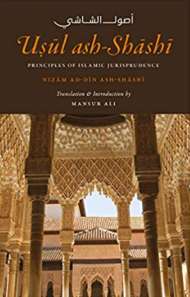![]()
![]()
Welcome to QuranicThought.com
MISSION
Our mission is to preserve Islamic Civilization by making all its jewels available to the whole world for free using the latest technology.
INTRODUCTION
Quranicthought.com is a project dedicated to making available all the important texts of the Islamic Sciences over the course of history up to the present day to everyone in the world in searchable form as free PDFs and free Podcasts: on computers, phone apps and in the future, wearable technology, in the best quality possible, in a user-friendly way, at one trusted address. We want you to be able to read and/or listen to, and think about, the treasures of Islamic Thought, for free, anytime and anywhere.
This is obviously a massive endeavor consisting of millions of books and tens of thousands of hours of audio recordings and will be permanently ongoing in sha Allah. All texts will be available in Arabic, and English translations will be provided where these are available, God willing.
We are a Shafi’i Sunni Religious Trust (waqf), but we are committed to providing all the texts available in a non-political, non-partisan way, promoting all four established Sunni madhahib and respecting the other madhahib of Islam: Zeidi, Jafari, Thahiri and Ibadhi, as well as the thought of the early imams like Sufyan al-Thawri, Laith Ibn Sa’d and Al-Awza’i. We hope to make available the points of view of all Muslim scholars as such, whether we agree with them or not.
No money is required to use this site and its resources. It is completely free. However, you can contribute by promoting us online, by providing texts to upload, by helping us with online work and by writing us with your feedback and suggestions. We do also need financial contributions, but want them from the super wealthy. From everyone else all we require is du’a.
APPROACH
Because the religious sciences produced by Islamic Civilization are so vast, we have categorized them by main subject to make access easier: e.g., Qur’an (for listening); tafsir; hadith, usul, seerah, ‘aqidah, fiqh; ihsan, falsafa, and so on. We have chosen a list of 25 books for the essential texts of all disciplines which all Muslims should know. Beyond that, however, we have made a special section for the 500 most influential books on Sunni Thought (according to the Royal Aal al-Bayt Institution’s seminal survey). Most people—even many scholars—will not read much more than 500 books (especially as these are long books) in their lifetimes so this should suffice as a roadmap for most people to read throughout their lives. Then we have made special sections for three pivotal Shafi’i scholars (in association with the Professorial chairs on Razi and Ghazali linked to this website): Ghazali, Razi and Suyuti. Studying the entire thought of one major comprehensive thinker can be far more conducive to real comprehension and to absorbing an Islamic world-view than cherry-picking from many scholars, especially with polymaths like Ghazali, Razi and Suyuti.
Moreover, Ghazali represents a high point in Islamic usul (particularly in his Mustasfa), a high point in ihsan and ‘aqida (in his magnum opus, Ihya ‘Ulum al-Din) and a high point in both logic and philosophy in his books on those subjects. Razi represents the high point of Tafsir and Kalam in his Mafatih al-Ghayb. Suyuti represents a high point of Tafsir ma’thur (transmitted tafsir) in his Tafsir Al-Jalalayn, Al-Durr al-Manthur and his Itqan fi ‘Ulum Al-Qur’an, a comprehensive survey of hadith in his collections of hadith, and authoritative exposition of Shafi’i fiqh. Between these three luminary scholars there are few intellectual issues that have not been clarified (notwithstanding modern questions of fiqh thrown up by modern science and technology). Moreover, many of their works have now been translated into English. So we hope, by having special sections for these three thinkers in particular, to give a thorough overview of traditional Orthodox Islamic thought in general, in sha Allah.
WHAT’S NEW
UPDATES
MOST WATCHED
Launched on 1/1/2019






























